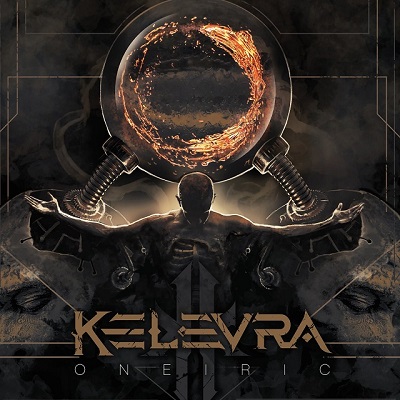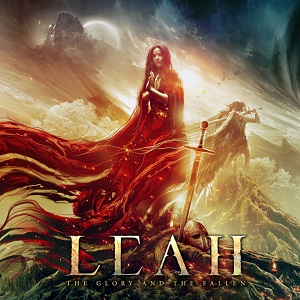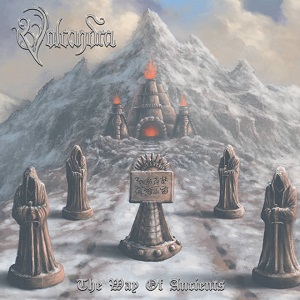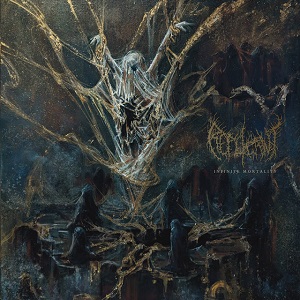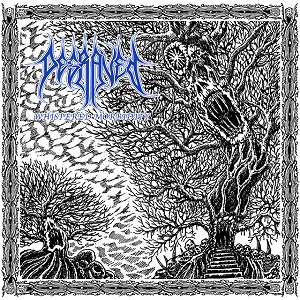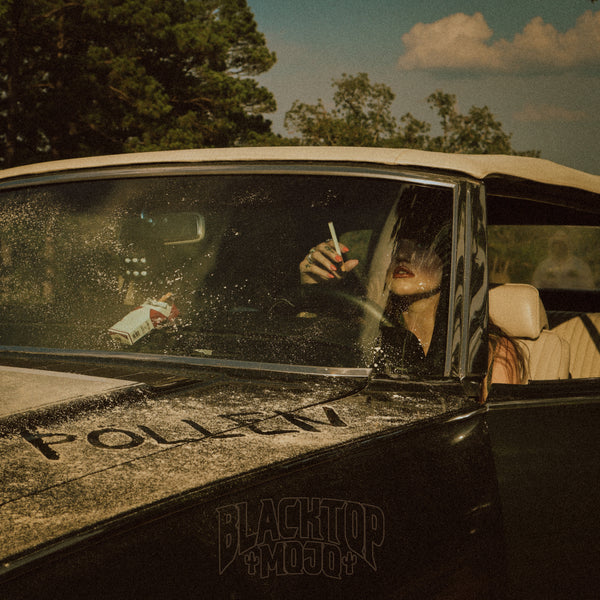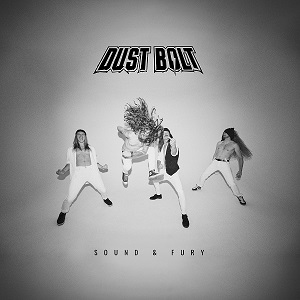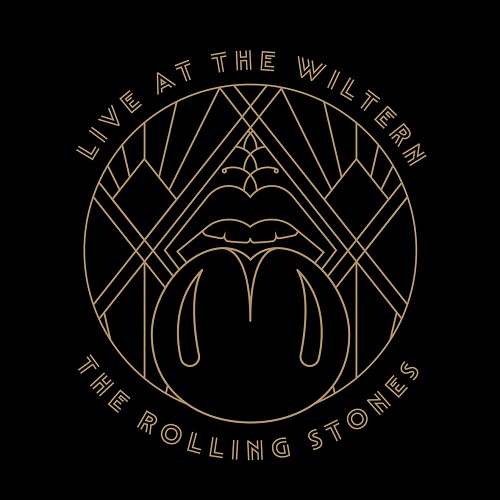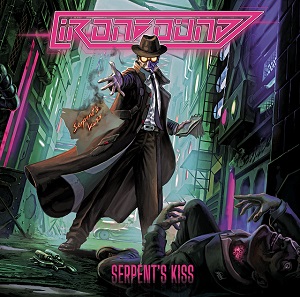CANNIBAL CORPSE - Plague Bearers
March 22, 2009, 15 years ago
It was no easy task for death metal granddaddies Cannibal Corpse to outdo 2006’s Kill. That disc was the band’s best, one that combined all the brutality they’ve ever known with a tightness and maturity that held it all together. It sounded like a band that had finally made the disc they’d been trying to for many years. So where to go from there? Well, there was last year’s excellent Centuries of Torment DVD (now certified platinum in Canada!), and now we’re banging heads to the band’s 11th (!) full-length, Evisceration Plague. The band’s new disc is even tighter (more on how they pulled that off later), and just as brutal as ever. After 21 years in death metal, it’s hard to imagine just how these guys are pulling this stuff off, so we caught up with guitarist Pat O’Brien to get the scoop, a day after the band filmed a video in New Jersey for the album’s title track.
“It was very cold,” he says. “We actually did this thing outside in the snow, if you can believe this shit. I couldn’t believe it. We got there and I was like, You gotta be fucking shitting me. You know? We did part of it in this old barn and we did some of it outside and there was no heat whatsoever and it was cold as fuck out there. I know it’s cold where you are but I’m spoiled by being down here in Florida. Once we got into it, it wasn’t so bad. But it’s so much colder when you’re standing around. Like hunting, you’re just sitting there not moving in the cold - that’s when you really get cold.”Now that the video shoot is over and the album is done, O’Brien can take a minute to sit back and listen to the disc removed from the recording process. And he’s pretty happy with it.
“I feel good about it, I think,” he says. “Any time after I record an album I have to step away from it for a while to let myself forget about all the little things that went into it or all the little things that could be better. It’s very tedious work. I think we got something pretty good on this one. I thought it was going to be hard for us to beat Kill, because it did good, sold a lot, people really liked it. So we had some pressure to at least make it as good as that album, or make it better. So the only thing we can do is keep trying to make the best albums we can make.”Some bands thrive off of the pressure O’Brien speaks of; does the Corpse relish the pressure? Does it work to their advantage?
“Oh yeah, it does, but no matter what we’re just gonna do what we’re gonna do,” he says. “Some albums, people are gonna like, and some albums people aren’t going to like as much or they’re not going to like. I remember when I first joined the band, when we did Gallery Of Suicide, there were a lot of people who hated it, but now a lot of people seem to like it; it’s kinda weird. I remember when Black Sabbath put out Never Say Die and a lot of people didn’t like that album; I always thought that was a kind of cool album. I guess it’s really up to the fans, in the end.”No doubt most Corpse fans are going to agree with this scribe’s assessment of the disc being the band’s strongest and tightest yet. O’Brien says, especially in regards to the guitar sound, that this may be the case.
“Yeah, I was gonna say, I think that’s one of the things we might have achieved; I think the guitar sound might be a little better, more tighter sounding, cleaner but still heavy, still with the distortion, but it’s more clear, more defined, you can hear the notes better. I think the performances are tighter. We used a click track on this album; we had written every song to a click, which made everything tighter. I think it made the whole thing come together more clear.”It does seem strange that at this point in a successful career a band would try something as different as using a click track to record. Why start now?
“Just to try something different,” says O’Brien. “Basically, just to try to make it better. We say to ourselves, ‘How can we make the next album better? Let’s try it this way. Let’s try a click.’ We started rehearsing with it in practice and Paul (Mazurkiewicz – drums) really liked it. It’s actually made him a better drummer; he’s done some of his best drumming on this album.”O’Brien says he definitely thinks the band will use the click again, ensuring future Corpse albums will be just as tight as this one. I mean, check out the mean groove of the title track, the technical death of ‘To Decompose’ or opener, raging pure Cannibal Corpse tune ‘Priests of Sodom’. It doesn’t get much better than this.
“There were so many advantages to it,” he says of the click track. “It’s just a better way to do things. Before, certain songs I would write, I’d have an idea in my head but it would come up a little faster in the studio than I thought it was going to be when I initially wrote the riff, just because you start playing a little different after a couple of months of rehearsing without a click track. So I think it helps to keep things more consistent. We knew what the speed was going to be before we went into the studio. Sometimes if you play things a little too fast or a little too slow you lose the initial feel of the riff.”And, really, kudos must be given to the guys just for simply trying something different at this point in their career.
“Oh yeah, it was very different for us (laughs). I didn’t think we’d be able to do it. I really didn’t think we would be. Just because we’ve done things the same way for so long. But we gotta keep things exciting for ourselves, too. So I think this helped, just trying new things like that.”And man, it all comes back to the click track for this disc: when I mention to O’Brien that the album feels and sounds confident, he doesn’t hesitate for a second in telling me why.
“I think part of that confident feeling was that we knew what we were going to be doing before we went in there. There was the grey area with certain solos or whatever, where we didn’t know what was going to happen but as far as the overall timing of the songs, a lot of that had to do with us using the click. It just helped make everything more solid.”One would think that at this point in their career, the band would have songwriting down to a science. And they do, but they are also mixing that up. And again, they’re smart for doing so, because all these changes seem to be breathing new life into this Corpse.
“That’s getting refined, or how should I say it? That’s changed too (laughs). Alex did a lot of his writing at home on a computer and he would come in with tablature written out, and there’s this program called Guitar Pro where he writes a lot of stuff on, and he sends me stuff on email, and I learn his riffs like that. Me, I’m still kinda old school, I like to go down and hash things out with Paul. So it was a little different, but Alex was definitely on a big writing kick this time and it worked really well for him and he was kicking out a lot of tunes; it was really hard to keep up with him. One of the good things is we definitely weren’t sitting around wondering what to do about ideas; there were lots of ideas flying around.”No doubt some people would think that sheet music and writing on a computer is not true death metal… “I used to think that way too,” says O’Brien, “but it depends on how you utilize that kind of stuff. You can dement anything you want (laughs). Look what people have done to movies.”
So speaking of the songwriting, it sounds like this time around the majority of the writing came from Alex. O’Brien confirms that is the case.
“Yeah, he wrote the majority of it,” he says. “He was on a writing kick. Every time we were done with a song he’d be like, ‘Well, I’ve got another song.’ It wasn’t that I had a bunch of ideas lying around that I wanted to use anyway. Like I say, I have more of an old school frame of mind where I like to go down and hash things out with Paul, and Alex already had all this stuff at home; he was writing a lot at home and bringing it to practice and that’s taking up time with Paul. But it’s a good way to write, really. It’s the best way to do it. I can’t discipline myself to write that way. Maybe I need to try (laughs). It’d be better if I could. He definitely wrote a lot of stuff; Rob (Barrett – guitars) wrote stuff, I wrote stuff, Paul wrote stuff. If we had more time, we could have done a double CD with all the material we had going. We just ran out of time for writing; we only allow ourselves so much time to write then we have to get in and do an album.”“If Alex is flowing and he’s got the ideas, I say let him go with it,” he continues. “It is kinda funny to think we can keep coming up with ideas, if you want to think about technically writing the same kinda shit for the last 20 years. We just try to explore different things with different scales, try new things. I think that’s what keeps it fresh.”
The band recorded Evisceration Plague with producer-in-demand Erik Rutan. O’Brien says the recording process went relatively smoothly but there were a few small snags, mainly regarding learning the difficult material Alex had brought to the table.
“On my end, for example, some of the stuff Alex wrote, I underestimated how difficult certain things were going to be,” he says. “When you’re in the studio you’re under a microscope. The more time you spend in the studio the more you’re zooming in on every little thing. I was thinking, well, we got a lot of time booked, we had almost two months or something like that. I was thinking it would go by smooth. Wrong. Well, it did and it didn’t (laughs). It was just incredible. I thought we’d be done early, but we never are. I think if we had six months to do an album, it would take us six months to do an album. I really do. Once you get in there, you start analyzing every little thing.”But O’Brien says that having too much time in the studio can be a problem too. I’m sure we can all think of a few releases that have been borne of lengthy studio sessions that just suck; sometimes less is more in the studio.
“I know bigger bands have spent so much time in the studio, I hear about the budget they have and it’s just insane. I think, ‘This should be the best shit ever,’ and it’s usually crap. I’m not gonna mention any names. Some of the same bands, their earlier albums where they went in and busted it out, they’re incredible.”Like I said in sentence one, Cannibal Corpse are the granddaddies of death metal. Is there a certain amount of pressure that comes with that? And does the band ever feel the pressure?
“There’s a bunch of up-and-coming new bands that sound great and you definitely have to keep up,” says O’Brien.“There are certain areas where we’re not going to be able to go where other bands have gone. But we don’t want to; we’re Cannibal Corpse and we’re just gonna do what we do. There is that pressure, but you can’t really be totally freaked out by that because that can be counterproductive. We just do what we do, and if we enjoy doing it and like what we do, hopefully other people will too.”
Other people do, no doubt: Cannibal Corpse is the one death metal band that has infiltrated the mainstream, at least in name if not by the music itself. And their fanbase is rabid and huge. And like we said earlier, it’s been an astonishing 21 years for these guys. When does it all end?
“I don’t know, it’s always been a couple more albums, but that’s always a couple albums ago (laughs). It keeps going on and on. I’ve thought that too: when does it end? I guess whenever we decide it ends. Hopefully. Look at bands that have long careers. Motorhead, for example, they’ve been doing for it years. No one cares. Lemmy’s old, they don’t care. He’s just old biker-looking dude or whatever, but it works for him. I don’t know if that will work for us, but I guess we’ll grow into whatever we’re going to grow into.”
